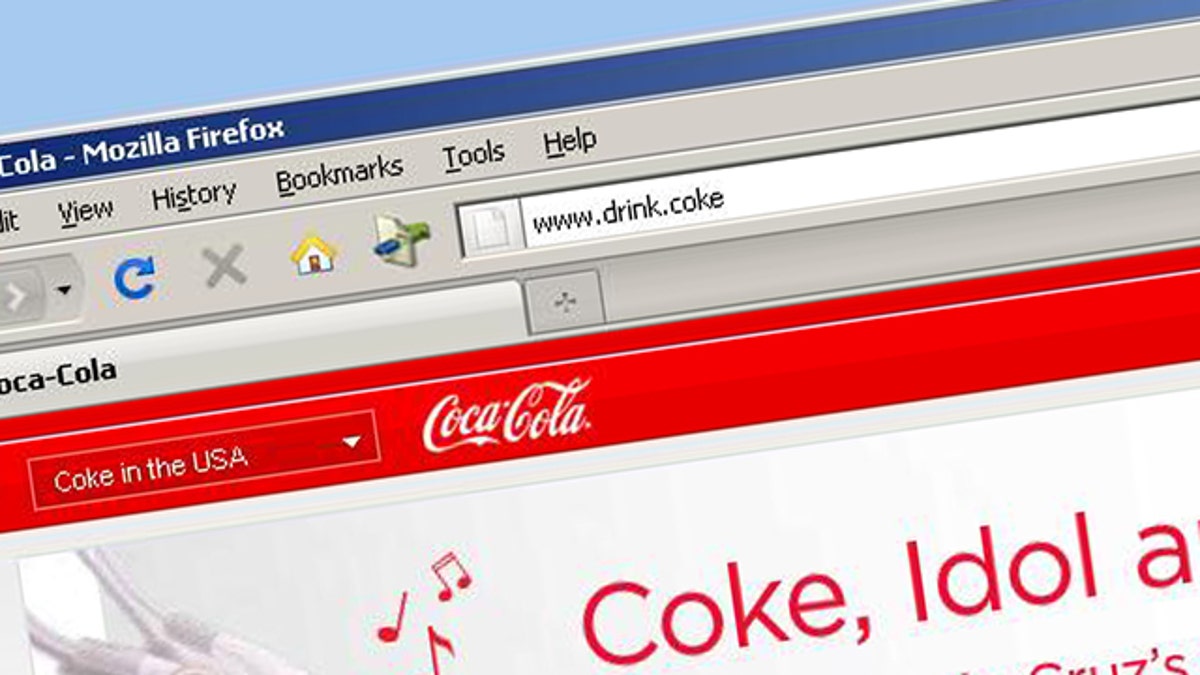
A forthcoming ruling by the board that approves Internet names and address could allow for countless new top level domain names such as ".coke," to join the popular existing ones such as .com and .net domains.
Brand owners will soon be able to operate their own parts of the Web -- such as .apple, .coke or .marlboro -- if the biggest shake-up yet in how Internet domains are awarded is approved.
After years of preparation and wrangling, ICANN, the body that coordinates Internet names, is expected to approve the move at a special board meeting in Singapore on Monday.
Today, just 22 generic top-level domains (gTLDs) exist -- .com, .org and .info are a few examples -- plus about 250 country-level domains like .uk or .cn. After the change, several hundred new gTLDs are expected to come into existence.
The move is seen as a big opportunity for brands to gain more control over their online presence and send visitors more directly to parts of their sites -- and a danger for those who fail to take advantage.
It will also change the way search engines like Google find results, and the way organizations use search-engine optimization to improve the visibility of their websites in search results.
"As a big brand, you ignore it at your peril," says Theo Hnarakis, chief executive of Australian domain name-registration firm Melbourne IT DBS, which advises companies and other organizations worldwide about how to do business online.
"We're advising people to buy their brands, park them and redirect visitors to their existing site, at the very least," says Hnarakis, whose more than 3,500 customers include Volvo, Lego and GlaxoSmithKline.
If the change is approved on Monday, applications are likely to open in January for a 90-day period before closing again, potentially for years.
It will cost $185,000 to apply, and individuals or organizations will have to show a legitimate claim to the name they are buying. ICANN is taking on hundreds of consultants to whom it will outsource the job of adjudicating claims.
"The commercial participants are the most active, aggressive and articulate members of our society," ICANN CEO Rod Beckstrom told Reuters in a recent interview, saying trademark owners in particular were anxious about how the new regime would work.
As well as big brands, organizations such as cities or other communities are expected to apply.
GTLDs such as .nyc, .london or .food could provide opportunities for many smaller businesses to grab names no longer available at the .com level -- like bicycles.london or indian.food.
The new domains will also change how ICANN works, as it will have a role in policing how gTLDs are operated, bought and sold. Until now, it has overseen names and performed some other tasks but has been little involved in the Internet's thornier issues.
To prevent so-called cyber-squatting, gTLD owners will be expected to maintain operational sites. ICANN will have to approve transfers to new owners at the top level.
